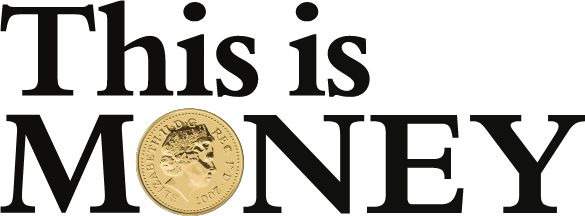Categories
How to Get a Mortgage with Bad Credit and a Good Income

If your credit history is poor, a mortgage can seem out of reach - but if you have the money to pay for it, shouldn’t you be able to find a lender? With Clifton Private Finance, the answer is a confident ‘yes’.
Let us explain what you can do to get a mortgage with bad credit it when you’ve got a good income.
And to get an instant estimate of what you may be able to borrow:
Table of Contents![]()
- Why Bad Credit Matters to Lenders
- The Role of a Mortgage Broker
- Income & Affordability vs. Credit Score
- Boosting Chances with a Larger Deposit
- Improving Affordability: Managing Debt
- Red Flags: New Debt & Gambling
- Tips for Improving Your Credit Score
- How Clifton Private Finance Can Help
Why Bad Credit is (Traditionally) Bad for Mortgages
From a lender’s perspective, mortgage lending is all about risk. With a range of fiscal rules in place to protect both the borrower and the finance industry, it isn’t as simple as a lender being able to bypass the standard criteria and hand out mortgages to anyone they like.
One of the key ways a lender has to quickly evaluate risk is to look at your credit score. This is a calculated value built up from the months and years of your financial actions, leading to a snapshot of your current financial status. Your credit rating provides a good indicator regarding your responsibility with money and is an excellent place for lenders to start when assessing you.
Specialist lenders, however, are typically more flexible. Willing to consider factors beyond the basic credit rating, with a different and more progressive way of assessing risk, specialist lenders offer a lifeline to bad credit applicants - especially those who can prove their reliability in other ways.

Using a Mortgage Broker
A mortgage broker, like Clifton Private Finance, sits between you and the lenders. Our job is to build relationships with decision makers with the many mortgage lenders in the UK marketplace, including both the traditional banks and the specialist lenders. We work all day, every day, evaluating the range of mortgage products available to UK applicants to determine which offer the best terms and rates to suit our clients.
Our expertise cuts through the difficulties you will encounter getting a mortgage with bad credit. We are here to listen to you, evaluate your finances in a holistic way that considers every aspect, and then help present you to the lender in the best possible light.
Recent Mortgage Case Studies
Read some of our recent client stories detailing how we can help in complex and unorthodox mortgage scenarios:
Considering Income Above Credit Score
While lenders do take your credit history into account in all cases, it is only one of multiple factors that influence their decision when it comes to determining your mortgage viability.
Affordability is a measure of your income against your outgoings. It effectively asks the essential question ‘can this person afford to make the monthly repayments?’. Let’s be honest - that’s really what the lender cares about. Affordability tests are stringent and can be tough, but the good news is that they are based significantly on your income. This is especially relevant for self-employed applicants or those with fluctuating but high income.
If you have a reasonable amount of money coming in, enough that it comfortably covers your expenditure, then you have the credentials the lender is looking for.
Affordability is more important to the majority of lenders than a credit rating because it shows your long-term financial potential rather than merely being a snapshot into the past. After all, what is more important - your struggles to get to this point, or your obvious financial strength going forward?
To learn more about affordability and how it is calculated, read our article ‘How Mortgage Affordability Checks Work’.
Offsetting Poor Credit History with Your Deposit
Credit scoring is used extensively, but it is not more important than your deposit. The deposit represents your personal investment into the property and significantly lowers the risk for the lender.
Mortgage sizes are based on loan-to-value (LTV). This percentage represents the size of the mortgage against the value of the property, and the lower it is, the less risk the mortgage lender is taking.
- Your deposit is the balance to LTV. A deposit of 10% represents an LTV of 90%; a deposit of 15% results in a LTV of 85%, and so on.
If you have bad credit but a good income, it is worth taking the time to build up a larger deposit to put the lender’s mind at rest. While those applicants with strong credit ratings may look to a 10% deposit to secure a mortgage, you might want to consider 15% or even 20%. This show of financial strength will go a long way to making your mortgage application easier - and if you have a comfortable income, it shouldn’t be too long to make up the extra for the deposit.
Further Improving Affordability
Your affordability calculation, as mentioned earlier, can be made even better by ensuring you are not carrying too much other debt or struggling with unnecessary outgoings. It is worth concentrating on interest-bearing debts, such as credit cards, overdrafts, or personal loans, and clearing those before making your mortgage application.
Reducing your outgoings by ridding yourself of unused subscription services, avoiding costly take aways or evenings out, and limiting unnecessary spending will also help a great deal - even if it’s just for a few months.
Avoiding Further Debt and Gambling
When it comes to red flags, new debts and gambling activity are particularly negative indicators for lenders and will reduce your chances of approval. It is important that you work to avoid these key issues to show yourself as a strong candidate for a mortgage.
The single exception is looking to obtain a debt consolidation loan to lower the interest you are paying to other debts while you clear them off.
Improving Your Credit Score
Ultimately, it never hurts to concentrate on improving your credit score. While there is nothing you can do about larger incidents in your past except exercising patience, you can improve your current standing with a few months of focused intent. Consider:

- Bringing your credit usage below 50% - Your credit usage is the amount of credit your are using when measured against that available to you. For example, a credit card with a £5,000 limit that has £4,000 used up is at 80%, whereas if only £2,500 were used, that would represent 50% usage. Try to get overall credit usage down as much as possible and you will open up many more mortgage options.

- Make sure bills are paid on time - Missing direct debts and other bill deadlines can have a significant effect for the short term. In the three months before your mortgage application, it’s good to have all your obligations paid on time.

- Ensuring you are properly registered - Having your address properly listed with the electoral roll is an important part of a good credit rating as it shows stability.

- Avoiding new credit applications - Hard credit checks (which occur whenever you apply for a loan, credit card, or payment plan) can have a negative effect on your credit rating even if your application is approved. Avoid applying for additional credit in the three months before your mortgage application.
Getting a Good Income / Bad Credit Mortgage with Us
At Clifton Private Finance, our mortgage team are here to help you get the mortgage you deserve. We understand the complexities of the UK mortgage landscape and have established relationships with the specialist lenders who are best placed to offer you a suitable mortgage. We can help with:
- Self-employed applications - If you are self-employed and have income that’s on the rise, we can help you get a mortgage that is based more on your current earnings than poorer tax returns from one or two years previously.
- Complex income streams - Many traditional lenders will dismiss alternative income streams, such as investments or additional gig-based incomes. We can present your full income to lenders to increase your mortgage viability.
- Pre-calculating affordability checks - With understanding of lenders’ criteria, we can help you estimate your affordability before making an application to improve your chances of acceptance.
- Long-term consideration for mortgage rates and flexibility - We understand the need for flexible terms that enable you to refinance your mortgage once your credit score situation improves, giving you access to better rates in the future.
- The best terms today - With access to the entire UK market of mortgage lenders and their complete mortgage range, we will find you the best mortgage to match your circumstances.
To present yourself to a mortgage lender looking more on your comfortable income than a credit rating based in the past, speak to Clifton Private Finance. Our team are here to help you get a successful mortgage today.


















